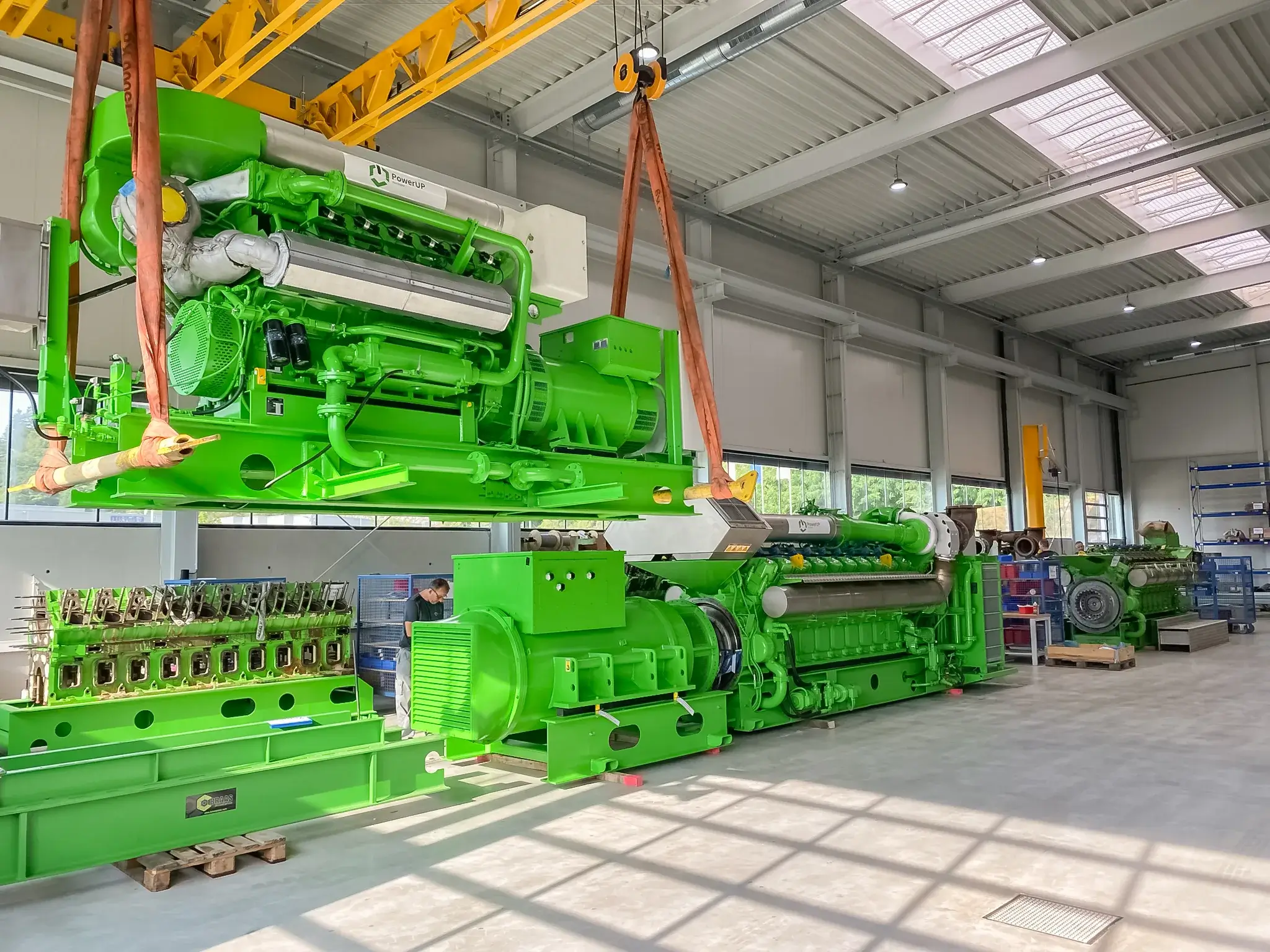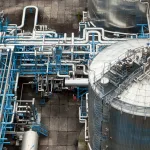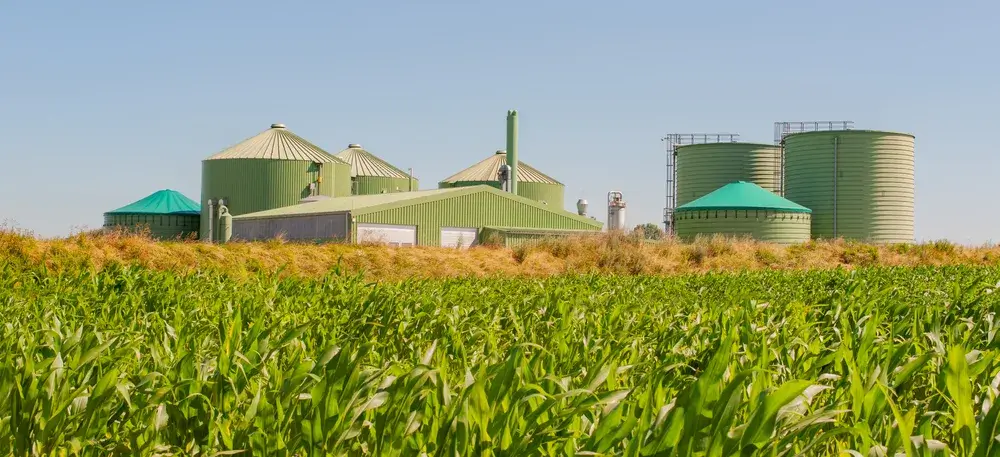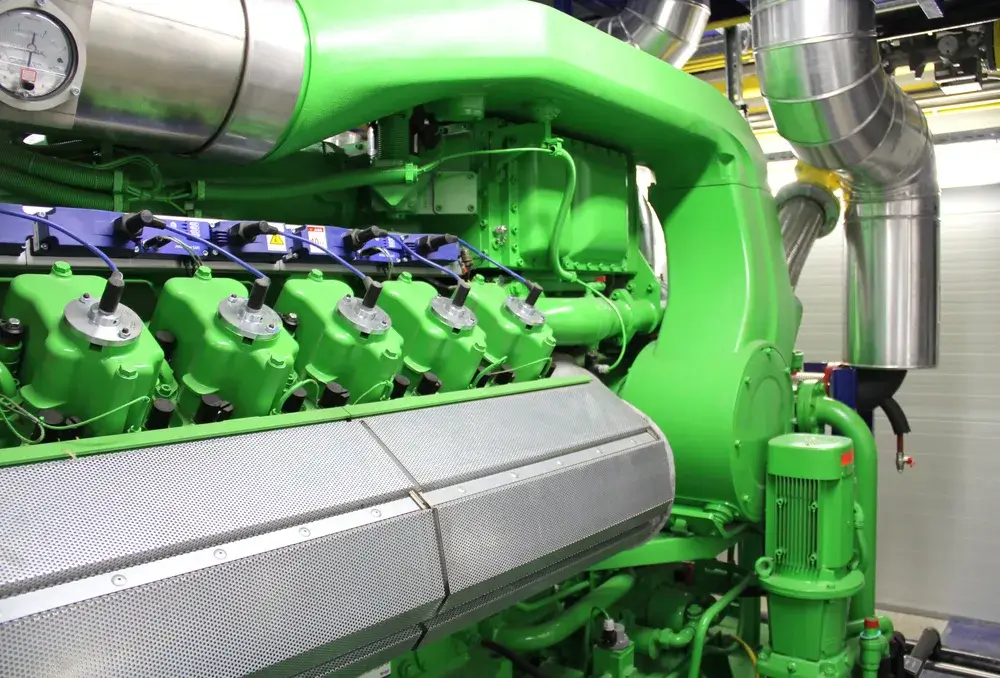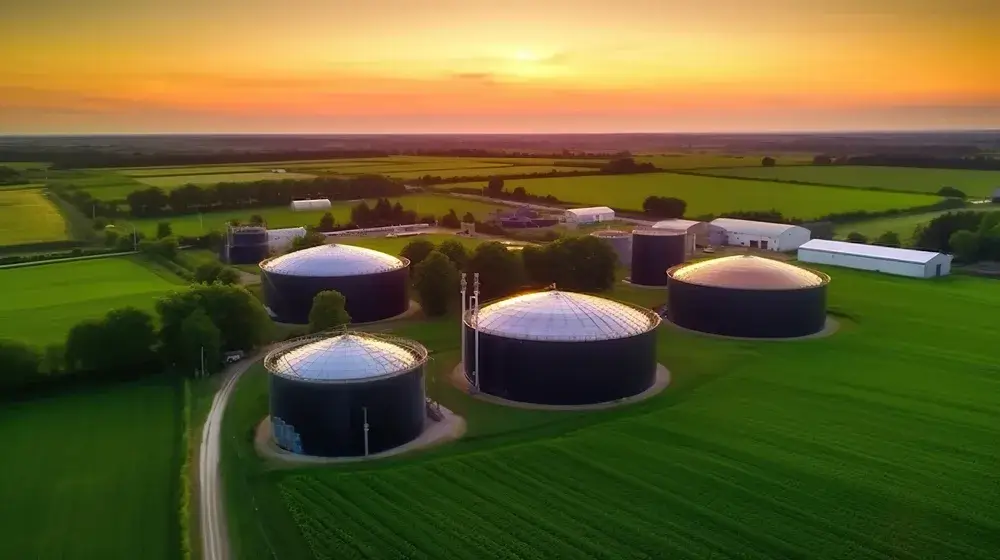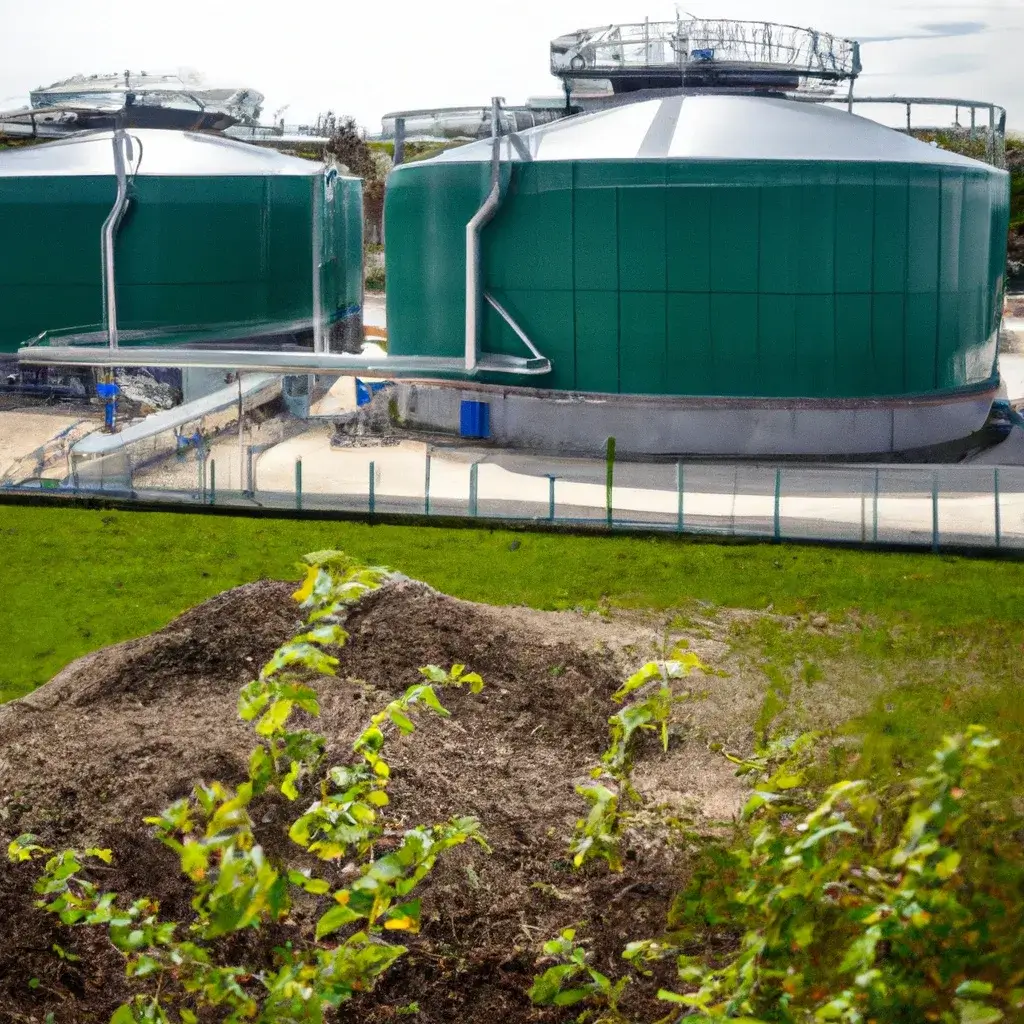Challenges of Gas engines – An overview of technology and applications
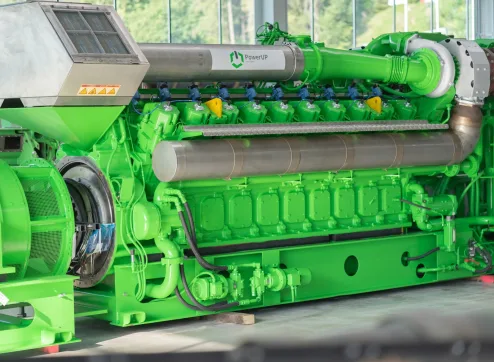
Gas engines play a significant role in the modern energy world. As a variant of classic combustion engines, they efficiently utilize gas fuels to generate mechanical energy. With diverse applications, they offer advantages over traditional fuels. However, they also encounter technical and economic challenges.
This article provides a comprehensive overview of their technology, areas of application, and the challenges that need to be addressed.
Introduction to the gas engine
Gas engines, which are a variant of classic combustion engines, utilize various gas fuels such as natural gas, biogas, or landfill gas to efficiently generate mechanical energy.
In contrast to gasoline and diesel engines that rely on liquid fuels, gas engines often achieve higher efficiencies and produce cleaner emissions. But how exactly does a gas engine work, and what are its specific advantages compared to other fuel types?
Gas engines – a comprehensive insight
If you want to know how a gas generator works, where they are used and how to get the most out of them, then you have come to the right place!
Function and technology
The basic operating principle of the gas engine is similar to that of the gasoline engine. Mixture formation occurs, where gas, typically in the form of methane or biogas, is mixed with air. The ignition of this mixture is achieved through the spark plug.
Unlike the diesel engine, where self-ignition occurs under pressure, the gas engine relies on spark ignition. Turbochargers can be used to increase the power range. Precise fuel injection is essential for achieving optimal combustion results and higher efficiencies.
Areas of application
Stationary gas engines are especially popular in combined heat and power (CHP) plants, where the principle of cogeneration is used for the generation of heat and electricity. This method of energy production is widespread f.ex. in Germany.
In addition to stationary applications, gas engines are also used as backup power generators or in specialized vehicles. Brands like Jenbacher® or MWM® are well-known in the industry for their reliable stationary engines.
Advantages compared to other engines
Gas engines, in comparison to gasoline and diesel engines, produce fewer harmful emissions and can be powered by renewable fuels. Biogas plants are advantageous in many regions due to their dual function as energy generators and waste disposers. Furthermore, gas engines for farming biogas enable flexible energy generation when utilizing lean gases, wood gas, or liquefied petroleum gas.
Challenges of gas engines
Gas engines offer significant benefits in energy production, but they also encounter technical and economic obstacles. Dealing with different types of gas fuels and achieving efficient combustion require specialized knowledge and equipment. This article examines the central challenges of this engine technology.
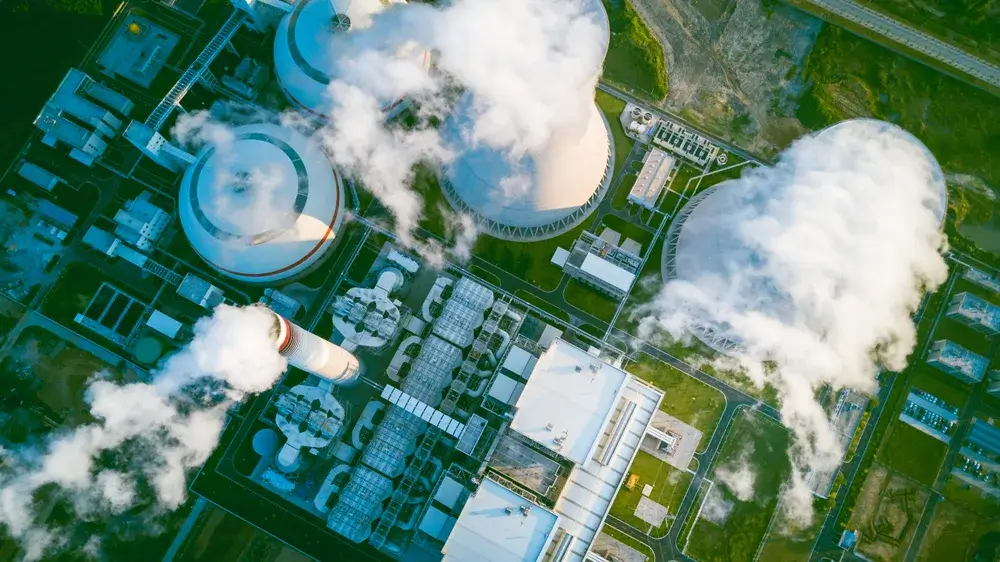
Environmental impact
Gas engines, although often promoted as a more environmentally friendly alternative to other internal combustion engines, still have ecological impacts. The two main areas of environmental concern are greenhouse gas emissions and air pollution.
When natural gas is burned in gas engines, it primarily produces carbon dioxide (CO2), which contributes to global warming. While CO₂ emissions are lower compared to burning coal or oil, it is important to note that methane, a major component of natural gas, is a much more potent greenhouse gas.
In case of leaks in the conveying system, methane can directly enter the atmosphere. Furthermore, incomplete combustion can result in the release of nitrogen oxides and other harmful pollutants that contribute to the formation of ground-level ozone and pose risks to human health. Therefore, it is crucial to employ modern technologies and enforce stringent regulations to minimize the adverse environmental effects of gas engines.
Economic considerations
The economic evaluation of gas engines requires a comprehensive analysis of the investment and operating costs compared to other energy sources. Initially, the acquisition costs of gas engines are typically competitive, particularly when considering the higher efficiency and lower maintenance requirements.

However, operating costs vary depending on the current price of gas, which is influenced by factors such as supply and demand, geopolitical dynamics, and stock levels. While natural gas is a cost-effective energy source in certain regions, it can be more expensive in other areas, particularly those where it needs to be imported.
Additionally, there are maintenance and repair costs that, although often lower than with other types of engines, still need to be considered. However, these costs can be minimized with the use of PowerUP spare parts.
Technical challenges
Gas engines, despite their efficiency and reliability, face a number of technical challenges. One primary challenge is the storage and transportation of gas, particularly natural gas. Due to its low density, natural gas must be stored and transported under high pressure or in a liquefied form, necessitating specialized and expensive infrastructures.
Additionally, incomplete combustion of gas can result in decreased efficiency and the release of pollutants. This necessitates the use of precise control systems and sensors for monitoring the quality of combustion. The susceptibility to malfunctions, whether from wear and tear or external factors, also calls for regular oversight and maintenance.
Who is PowerUP?
PowerUP is a company specializing in gas engine services and technology solutions for the gas engine industry. With a team of experts who possess years of experience and extensive expertise, we strive to set benchmarks in terms of quality, reliability, and innovation. Gas engine upgrades, gas engine repair and complete gas engine overhauls are daily business.

PowerUP is known not only for its high-quality gas engine spare parts suitable for brands like Caterpillar®, MWM® and INNIO Jenbacher®, but also for its comprehensive range of services, which include maintenance, repair, and individual consultations. With a clear focus on customer satisfaction, we are committed to always offering the best solutions for our customers’ requirements and challenges.

